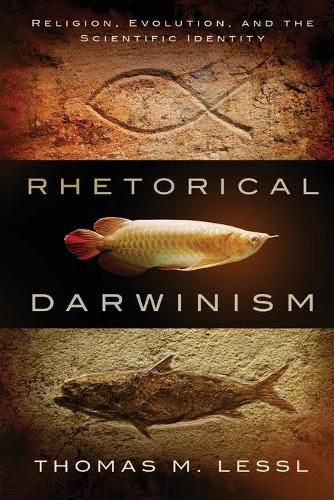Readings Newsletter
Become a Readings Member to make your shopping experience even easier.
Sign in or sign up for free!
You’re not far away from qualifying for FREE standard shipping within Australia
You’ve qualified for FREE standard shipping within Australia
The cart is loading…






This title is printed to order. This book may have been self-published. If so, we cannot guarantee the quality of the content. In the main most books will have gone through the editing process however some may not. We therefore suggest that you be aware of this before ordering this book. If in doubt check either the author or publisher’s details as we are unable to accept any returns unless they are faulty. Please contact us if you have any questions.
Everything evolves, science tells us, including the public language used by scientists to sustain and perpetuate their work. Harkening back to the Protestant Reformation–a time when the promise of scientific inquiry was intimately connected with a deep faith in divine Providence–Thomas Lessl traces the evolving role and public identity of science in the West.
As the Reformation gave way to the Enlightenment, notions of Providence evolved into progress. History’s divine plan could now be found in nature, and scientists became history’s new prophets. With Darwin and the emergence of evolutionary science, progress and evolution collapsed together into what Lessl calls
evolutionism,
and the grand scientific identity was used to advance science’s power into the world.
In this masterful treatment, Lessl analyzes the descent of these patterns of scientific advocacy from the world of Francis Bacon into the world of Thomas Huxley and his successors. In the end, Rhetorical Darwinism proposes that Darwin’s power to fuel the establishment of science within the Western social milieu often turns from its scientific course.
Rhetorical Darwinism: Religion, Evolution, and the Scientific Identity received the Religious Communication Associatons
Book of the Year
award in 2012.
$9.00 standard shipping within Australia
FREE standard shipping within Australia for orders over $100.00
Express & International shipping calculated at checkout
This title is printed to order. This book may have been self-published. If so, we cannot guarantee the quality of the content. In the main most books will have gone through the editing process however some may not. We therefore suggest that you be aware of this before ordering this book. If in doubt check either the author or publisher’s details as we are unable to accept any returns unless they are faulty. Please contact us if you have any questions.
Everything evolves, science tells us, including the public language used by scientists to sustain and perpetuate their work. Harkening back to the Protestant Reformation–a time when the promise of scientific inquiry was intimately connected with a deep faith in divine Providence–Thomas Lessl traces the evolving role and public identity of science in the West.
As the Reformation gave way to the Enlightenment, notions of Providence evolved into progress. History’s divine plan could now be found in nature, and scientists became history’s new prophets. With Darwin and the emergence of evolutionary science, progress and evolution collapsed together into what Lessl calls
evolutionism,
and the grand scientific identity was used to advance science’s power into the world.
In this masterful treatment, Lessl analyzes the descent of these patterns of scientific advocacy from the world of Francis Bacon into the world of Thomas Huxley and his successors. In the end, Rhetorical Darwinism proposes that Darwin’s power to fuel the establishment of science within the Western social milieu often turns from its scientific course.
Rhetorical Darwinism: Religion, Evolution, and the Scientific Identity received the Religious Communication Associatons
Book of the Year
award in 2012.